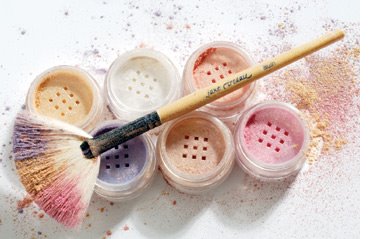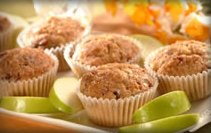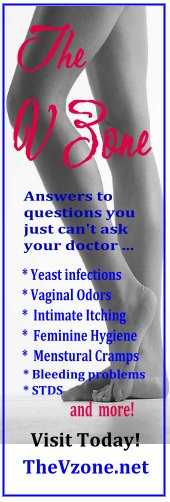 What do high carbohydrate snack foods, vitamin pills and anti-inflammatory pain medications all have in common?
What do high carbohydrate snack foods, vitamin pills and anti-inflammatory pain medications all have in common?
All three were the subject of new studies, which give us some new and surprising information about the risks of breast cancer.
Indeed, in reports published in two top medical journals this month, doctors from France, Canada and the United States shed new light on what can increase – and possibly decrease – the risk of breast cancer, and from sources most of us might never expect.
Cake, Candy and Breast Cancer: New Links
 If you’re a woman who just can’t eat a sandwich on anything but white bread, if you can’t go a day without your chocolate cake, if you gulp down sugary sodas by the case, you may have more to worry about than just the numbers of your scale.
If you’re a woman who just can’t eat a sandwich on anything but white bread, if you can’t go a day without your chocolate cake, if you gulp down sugary sodas by the case, you may have more to worry about than just the numbers of your scale.In a study of more than 62,000 post menopausal women published in this month’s American Journal of Clinical Nutrition, a group of French researchers found that foods high on the glycemic index (also known as rapidly digesting simple carbohydrates like white flour and sugar) may increase the risk of breast cancer in women who are already overweight, particularly those who carry their weight in the waistline.
Moreover, the larger a woman’s waist size, the more likely she is to be impacted by the carbohydrate-breast cancer link. A diet rich in refined carbohydrates may also increase the risk of estrogen-receptor negative breast cancer, a specific type of tumor.
While doctors aren’t sure why the association appears to exist, one theory is that diets high in refined carbohydrates result in chronically elevated insulin levels – which in turn stimulates insulin-like growth factors, which may play a role in tumor formation. Click here to learn more about this study and the specific foods.
Can Vitamins Increase Your Risk of Breast Cancer?
The surprising news from a group of Montreal researchers is that taking a multi vitamin every day may, in fact, increase breast density – a factor that many believe is a marker for breast cancer.
In a study of nearly 1600 women also published in the current issue of the American Journal of Clinical Nutrition, researchers from McGill University in Montreal found that regular use of multi vitamins appeared to increase the density of breast tissue in pre menopausal – but not postmenopausal women.
While having a dense breast does not necessarily increase your risk of breast cancer, it is considered that doctors call an “intermediate marker “ of breast cancer risk. Moreover, when breast tissue is dense it can make it difficult to find abnormalities, such as lumps or abnormal cell growth. Often, women with large breasts also harbor dense breast tissue, making it sometimes difficult for a mammogram to spot an early cancer.
What can help: Talk to your doctor about the need to supplement your regular mammogram with an ultra sound radio imaging breast check. This painless method of looking at breast tissue can help clarify mammography findings and may help spot abnormalities in dense breast tissue even more clearly than traditional radiology screenings. This may be particularly important if you are already at risk from breast cancer – if you have a first degree relative with breast cancer, or if you are a smoker or consume significant amounts of alcohol.
Since multi-vitamins can have many health benefits, it’s important to bring the new finding to your doctor before deciding whether or not your vitamin product is right for you.
Click here to learn more about vitamins and breast cancer.
In a study of nearly 1600 women also published in the current issue of the American Journal of Clinical Nutrition, researchers from McGill University in Montreal found that regular use of multi vitamins appeared to increase the density of breast tissue in pre menopausal – but not postmenopausal women.
While having a dense breast does not necessarily increase your risk of breast cancer, it is considered that doctors call an “intermediate marker “ of breast cancer risk. Moreover, when breast tissue is dense it can make it difficult to find abnormalities, such as lumps or abnormal cell growth. Often, women with large breasts also harbor dense breast tissue, making it sometimes difficult for a mammogram to spot an early cancer.
What can help: Talk to your doctor about the need to supplement your regular mammogram with an ultra sound radio imaging breast check. This painless method of looking at breast tissue can help clarify mammography findings and may help spot abnormalities in dense breast tissue even more clearly than traditional radiology screenings. This may be particularly important if you are already at risk from breast cancer – if you have a first degree relative with breast cancer, or if you are a smoker or consume significant amounts of alcohol.
Since multi-vitamins can have many health benefits, it’s important to bring the new finding to your doctor before deciding whether or not your vitamin product is right for you.
Click here to learn more about vitamins and breast cancer.
Aspirin and Breast Cancer: The Good News!
This month doctors from Columbia's Mailman School of Public Health in New York City have some good news to report: Commonly used non-steriodal anti-inflammatory medications (NASAIDs) such as aspirin or Motrin, do not appear to impact breast density, adding to the growing body of evidence that these medications may actually be associated with a lower incidence of breast cancer.
Reporting in this month’s journal Cancer Epidemiology, Biomarkers & Prevention, researchers examined the pharmacy records of some 29,000 postmenopausal women, each of whom underwent 2 mammograms. The pharmacy records were used to determine which women used NSAIDs – and how often and how long - between the two screenings.
The result: No association or change in breast density among either those women who began using these drugs between mammograms, or among those who continued to use them from one mammogram to the next. Again, the level of breast density is considered a marker for breast cancer.
In fact, the really good news: Women who continued to use NSAIDs appeared to have a lower risk of developing a dense breast than non-users, indicating that longer –term use of these drugs may help reduce breast density in some women, thereby reducing their subsequent risk of breast cancer.
Although NSAIDs are frequently prescribed as not only pain relievers but also to help reduce the risk of heart attack in women with heart disease, doctors warn that for some these drugs can also increase the risk of serious, life threatening gastrointestinal bleeding.
The take home message here: Talk to your doctor before deciding if the regular use of NSAIDs will offer benefits that outweigh the risks. To learn more details on this study click here.
For the latest health, beauty, life & style news visit RedDressDiary.com
The Destination for Fabulous Women Over 40!




































No comments:
Post a Comment